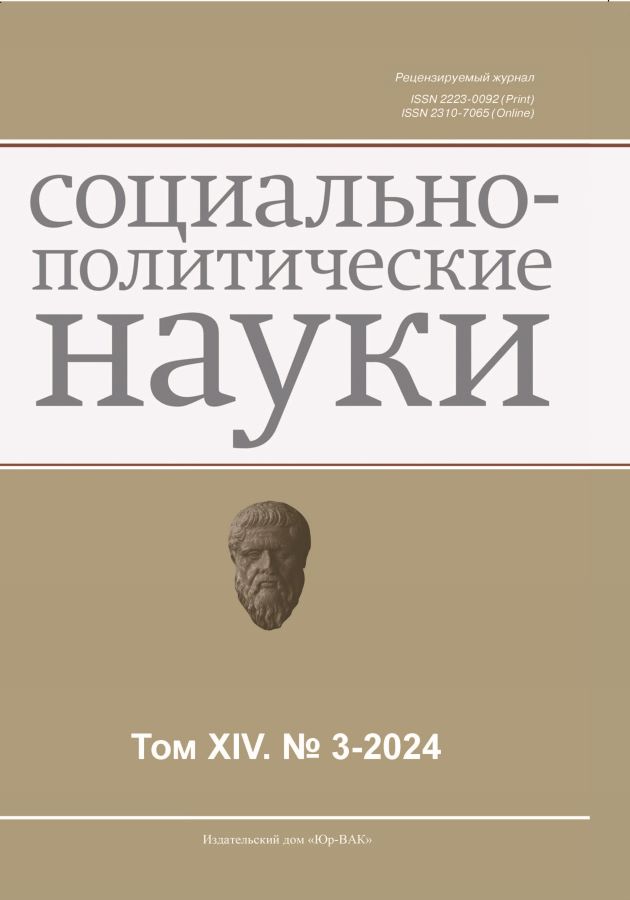The fourth energy transition: current status and outlook, Russia’s strategy in the geopolitical struggle
- Авторлар: Hodakovsky E.A.1, Sizov A.A.2
-
Мекемелер:
- Russian State University for the Humanities
- Moscow State Institute of International Relations (University) of the Ministry of Foreign Affairs of the Russian Federation (MGIMO University)
- Шығарылым: Том 14, № 3 (2024)
- Беттер: 186-194
- Бөлім: National Security of Russia
- URL: https://journals.eco-vector.com/2223-0092/article/view/635491
- DOI: https://doi.org/10.33693/2223-0092-2024-14-3-186-194
- EDN: https://elibrary.ru/LFVZSH
- ID: 635491
Дәйексөз келтіру
Аннотация
The article is devoted to the analysis of the public and tacit reasons for the fourth energy transition. An assessment of the phenomenon of the fourth energy transition is given as an objective stage in the development of global energy, and through the prism of economic competition and geopolitical confrontation between the EU, USA, Russia, China, and fossil fuel exporting countries. The history of interaction between the USSR (RF) and European countries in the energy sector is outlined. The politically motivated background behind the causes of the energy crisis and the accelerated pace of energy transition is revealed. The problem of the risks of the energy transition in the modern geopolitical and socio-economic situation is touched upon. The main provisions of the energy development strategy of the Russian Federation in the conditions of the fourth energy transition are presented.
Толық мәтін
Авторлар туралы
Evgeniy Hodakovsky
Russian State University for the Humanities
Хат алмасуға жауапты Автор.
Email: khodakovsky@bk.ru
ORCID iD: 0000-0003-1204-5129
SPIN-код: 7284-9177
Dr. Sci. (Polit.), Associate Professor; Professor, Department of Foreign Regional Studies and Foreign Policy
Ресей, MoscowAndrei Sizov
Moscow State Institute of International Relations (University) of the Ministry of Foreign Affairs of the Russian Federation (MGIMO University)
Email: Sizov010@yandex.ru
SPIN-код: 2516-6951
Cand. Sci. (Eng.); PhD student
Ресей, MoscowӘдебиет тізімі
- Seregina A. Economic and energy diplomacy in the context of the fourth energy transition. Moscow: Infra-M, 2022. P. 123. EDN: HSGSLR.
- Martynov V.G., Bessel V.V., Lopatin A.S. About Russia’s carbon neutrality. Proceedings of the Gubkin Russian State University of Oil and Gas. 2022. No. 1 (306). Pp. 5–20. (In Rus.). doi: 10.33285/2073-9028-2022-1(306)-5-20. EDN: NBXQNV.
- Belyaev L.S., Voropai N.I., Marchenko O.V. et al. Electric power integration of Russia into the Eurasian space: Conditions and the role of hydropower resources. Energy Policy. 2016. No. 1. Pp. 26–36. (In Rus.).
- Berdyshev I., Bitney V., Gabdushev D. et al. Research prospects for the development of hydropower in Siberia, the Far East and Kamchatka. Energy Policy. 2023. No. 6. Pp. 38–53. (In Rus.).
- Bogush B.B., Khaziakhmetov R.M., Bushuev V.V. et al. Basic provisions of the Russian hydropower development program up to 2030 and for the future up to 2050. Energy Policy. 2016. No. 1. Pp. 3–19. (In Rus.).
- Lushnikov O.G. Russian hydropower in the context of global challenges and global trends. Hydrotechnics. 2022. No. 1 (66). Pp. 45–49. (In Rus.). doi: 10.55326/22278400_2022_1_66_45
- Mitrova T.A., Galkina A.A. Inter-fuel competition. HSE Economic Journal. 2013. No. 3. Pp. 372–389. (In Rus.).
- Novozhenin V.D. Russian hydropower. Problems with benefits. Power Engineer. 2019. No. 3. Pp. 3–7. (In Rus.).
- Ostrovsky A.V. China’s energy market: Russia’s interests and opportunities. Moscow, 2011.
- Stennikov V.A., Golovshchikov V.O., Osak A.B. Problems and prospects for the development of the electric power industry in the eastern regions of Russia. Energy Policy. 2023. No. 6. Pp. 20–37. (In Rus.).
- Shepelev G.V. Energy transition: Approaches to the formation of the research agenda for Russian science. Management of Science: Theory and Practice. 2022. Vol. 4. No. 1. Pp. 101–121. (In Rus.). doi: 10.19181/smtp.2022.4.1.6
- Yakovlev I.A., Kabir L.S., Nikulina S.I. National strategy for energy transition financing: Assessment of opportunities and search for solutions. The Journal of Finance. 2022. Vol. 14. No. 5. Pp. 9–24. (In Rus.). doi: 10.31107/2075-1990-2022-5-9-
- Grushevenko D.A., Grigoriev L.M., Galkin Yu.V. et al. Evolution of world energy markets and its consequences for Russia. Moscow, 2015.
- Grübler A. Diffusion: Long-term patterns and discontinuities. Technological Forecasting and Social Change. 1991. Vol. 39 (1–2). Pр. 159–180.
- Smil V. Energy and civilization: A history. Cambridge: MIT Press, 2017. 568 p.
- Smil V. Energy transitions: History, requirements, prospects. Oxford: Praeger, 2010. 178 p.;
- Smil V. Energy in world history. Boulder: Westview Press, 1994. 300 p.
- Han Haolei, Chu Ling. The ways to strengthen cooperation between China and Russia in the field of low-carbon energy (in the context of the global trend of “Carbon Neutrality”). Sociopolitical Sciences. 2021. Vol. 11. No. 4. Pр. 62–69. (In Rus.). doi: 10.33693/2223-0092-2021-11-4-62-69. EDN: DSZSXT.
Қосымша файлдар








